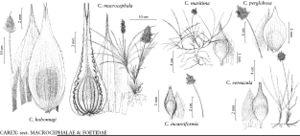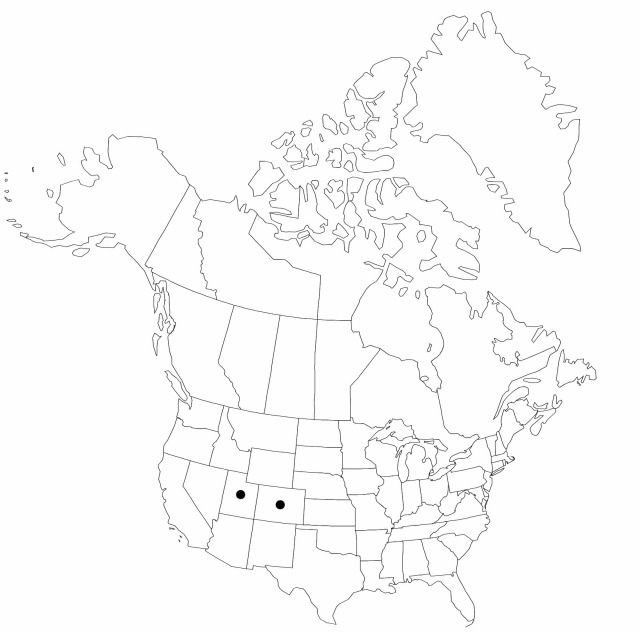Carex perglobosa
Bull. Torrey Bot. Club 34: 606. 1908.
Plants loosely cespitose. Culms often curved, bluntly trigonous, 5–15 cm, smooth-angled distally. Leaves: basal sheaths brown; ligules 0.4–1.6 mm; blades folded to involute, ± equaling culms, 0.8–2.2 (–2.5) mm wide. Inflorescences 1–1.8 cm; spikes ca. 8–15, essentially indistinguishable in dense globose to ovoid head. Pistillate scales reddish-brown to dark-brown, ± translucent with broad whitish hyaline margins, broadly ovate, ± equaling perigynia, apex obtuse to acute, body shiny. Anthers 1–1.5 mm. Perigynia dark-brown, finely 5–9-veined abaxially, faintly veined or essentially veinless adaxially, clearly inflated, broadly elliptic, 3.6–5 × 1.9–2.6 mm, delicate and membranous, shiny; stipe to 0.2 mm or essentially absent; beak poorly defined, 0.6–1.1 mm, smooth or slightly scabrous-margined.
Phenology: Fruiting Jul–Sep.
Habitat: Dry alpine tundra, especially scree slopes, uncommon and local
Elevation: 3600–4000 m
Discussion
Some collections of Carex perglobosa from Utah show some characteristics of C. vernacula (A. Cronquist et al. 1972+, vol. 6).
Selected References
None.
Lower Taxa
"shortened" is not a number.

